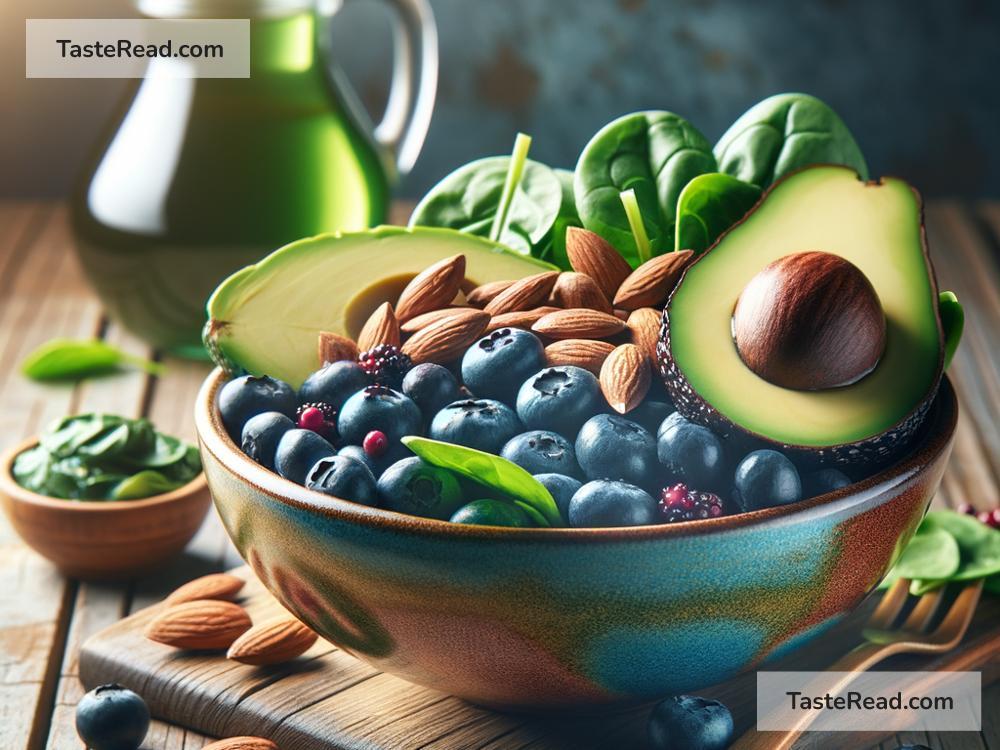The Role of Antioxidants in Preventing Chronic Diseases
In recent years, there’s been a lot of talk about antioxidants and their importance for health. You might have seen this term on food packaging or heard it in conversations about nutrition, but what exactly are antioxidants, and why are they so important? In this article, we’ll explore the role antioxidants play in preventing chronic diseases—using simple language that’s easy to understand.
What Are Antioxidants?
Antioxidants are substances that protect our bodies from damage caused by harmful molecules called free radicals. Free radicals are unstable, reactive molecules that are naturally produced in our body during processes like digestion or when we’re exposed to pollution, cigarette smoke, or UV rays from the sun. When free radicals build up, they can cause oxidative stress, a condition where cells and tissues in the body get damaged over time.
Think of free radicals like rust on metal. Just like rust eats away at iron, free radicals can harm our cells, leading to aging and diseases. Antioxidants act as shields or “rust protectors” for our bodies. They neutralize these free radicals before they can cause harm, keeping our cells healthy.
Chronic Diseases Linked to Oxidative Stress
Chronic diseases are long-term health conditions that often develop slowly and don’t go away on their own. Examples include heart disease, cancer, diabetes, Alzheimer’s, and arthritis. Research suggests that oxidative stress plays a key role in the development of many chronic diseases. Here’s how this happens:
-
Heart Disease: Oxidative stress can damage blood vessels and cholesterol in your body, causing plaque buildup and inflammation in your arteries. Over time, this might lead to conditions like heart attacks and strokes.
-
Cancer: Free radicals can damage your DNA, the blueprint of your cells. If your DNA gets damaged, cells might start growing uncontrollably, leading to cancer.
-
Diabetes: Oxidative stress is believed to contribute to insulin resistance, a condition where your body stops responding well to the hormone insulin, resulting in type 2 diabetes.
-
Alzheimer’s Disease: Your brain is especially vulnerable to free radical damage, which can lead to memory loss and diseases like Alzheimer’s. Oxidative stress is thought to play a role in aging and brain inflammation.
-
Joint Problems: Free radicals can damage cartilage in your joints, contributing to arthritis and other painful joint conditions.
How Antioxidants Help Prevent Chronic Diseases
Antioxidants stop free radicals from causing damage. By reducing oxidative stress, they help lower the risk of chronic diseases. While the body naturally produces some antioxidants, we also get many from the foods we eat. A balanced diet full of antioxidant-rich foods can give your body the extra help it needs to stay healthy.
Where to Find Antioxidants
A wide variety of foods contain antioxidants, making it easy to incorporate them into your daily meals. These include:
-
Fruits: Fruits like berries, oranges, apples, and grapes are packed with antioxidants, particularly vitamin C. Blueberries, for instance, contain anthocyanins, a type of antioxidant that gives them their vibrant color.
-
Vegetables: Leafy greens like spinach and kale are rich in antioxidants like lutein and beta-carotene. Brightly colored vegetables like carrots, sweet potatoes, and bell peppers are also great choices.
-
Nuts and Seeds: Almonds, walnuts, sunflower seeds, and flaxseeds contain vitamin E, an important antioxidant that protects cells.
-
Whole Grains: Foods like oatmeal and brown rice contain antioxidants that help reduce inflammation in the body.
-
Tea and Coffee: Green tea is particularly famous for its high antioxidant content. Even coffee contains antioxidants that can contribute to overall health.
-
Dark Chocolate: Good news for chocolate lovers: Dark chocolate is rich in antioxidants called flavonoids, which can benefit your heart and brain.
-
Spices and Herbs: Cinnamon, turmeric, ginger, and garlic are examples of spices packed with antioxidants.
Simple Ways to Add Antioxidants to Your Diet
Adding antioxidants to your daily routine doesn’t have to be complicated. Here are a few tips:
- Start your day with a piece of fruit or a smoothie made with berries and spinach.
- Snack on nuts or seeds instead of processed foods.
- Use olive oil (rich in antioxidants) as your main cooking oil.
- Drink green tea or herbal tea during the day.
- Add a variety of colorful vegetables to your meals.
- Swap milk chocolate for dark chocolate as a treat.
A Word of Caution
While antioxidants are incredibly beneficial, it’s important to focus on getting them from natural food sources rather than supplements. Taking antioxidant supplements in high doses may sometimes have the opposite effect, causing harm instead of helping. Scientists are still studying why this happens, but for now, it’s best to rely on a balanced diet for your antioxidant intake.
Conclusion
Antioxidants play a crucial role in protecting your body from free radical damage, which helps prevent chronic diseases like heart disease, cancer, diabetes, and more. By eating a variety of fruits, vegetables, nuts, and other antioxidant-rich foods, you can give your body the tools it needs to stay healthy.
Building your plate with colorful, fresh foods isn’t just a delicious way to eat—it’s also a smart investment in your long-term health. So, the next time you sit down for a meal, remember the power of antioxidants and how they work behind the scenes to protect your body and keep chronic diseases at bay.
After all, when you care for your health today, you’re setting yourself up for a better tomorrow.


